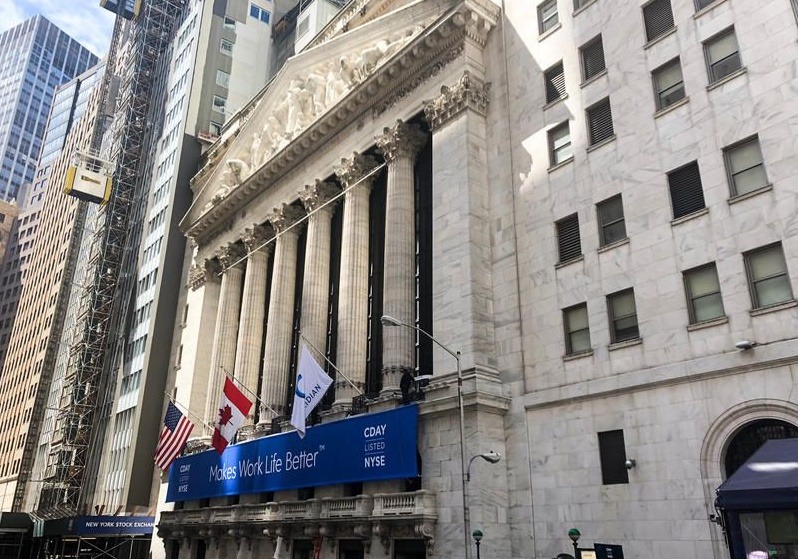
The Dow Jones Industrial Average declined on Tuesday, influenced by concerns regarding U.S. inflation and a varied performance in earnings from major banks, which contributed to the downward movement of the blue-chip index. The Nasdaq Composite, meanwhile, experienced an uplift due to gains in Nvidia.
The 30-stock Dow experienced a decline of 436.36 points, equivalent to 0.98%, concluding the session at 44,023.29. The S&P 500 experienced a decline of 0.40%, concluding the day at 6,243.76, after having reached a new record high earlier in the session. The Nasdaq demonstrated strong performance, increasing by 0.18% and achieving a record close of 20,677.80. The tech-heavy index experienced a boost, reflecting a 4% increase in Nvidia shares following the chip manufacturer’s announcement that it anticipates “soon” resuming deliveries of its H20 GPU sales to China.
The June inflation data released on Tuesday indicated a rise from May levels, even though the headline figures aligned with expectations. The consumer price index rose by 0.3% for the month, resulting in an annual inflation rate of 2.7%, in line with expectations from a consensus poll conducted by Dow Jones. Core CPI, which excludes food and energy prices, increased by 0.2% month over month, falling slightly short of expectations. On a year-over-year basis, it grew by 2.9%, in line with expectations. The report heightened concerns regarding the implications of President Donald Trump’s tariffs. On Saturday, Trump announced that the United States will implement a 30% tariff on imports from the European Union and Mexico, effective August 1.
“The latest U.S. inflation report practically confirmed that President Trump’s tariffs acted to push up consumer prices in June,” stated Matthew Ryan, head of market strategy at global financial services firm Ebury. “Although there was a slight shortfall in the core figure, both the headline and core inflation metrics are currently reflecting their peak levels in four months.” The primary concern for Federal Reserve officials is the potential for more turbulent economic conditions in the future. This concern arises not only from the inherent time lag between the implementation of tariffs and subsequent price increases but also from the likelihood that additional tariff increases on 1st August would almost certainly signal further inflationary pressures on the horizon,” Ryan noted.
Skyler Weinand, chief investment officer of Regan Capital, expressed relief regarding Tuesday’s CPI report aligning with expectations, yet noted that “it’s highly likely that a tariff-driven inflation reckoning is coming.”
In terms of earnings, the reports from various financial giants did not meet investor expectations. Wells Fargo reported earnings that exceeded expectations; however, a downward revision in net interest income guidance resulted in a decline of over 5% in share value. JPMorgan Chase’s shares experienced a slight decline despite the bank reporting second-quarter results that surpassed expectations, fueled by robust trading and investment banking revenue. Asset manager BlackRock experienced a decline of nearly 6% following a quarterly revenue shortfall. Citigroup defied the prevailing downturn in the financial sector, experiencing an increase of over 3% following the bank’s performance that exceeded second-quarter projections.
Wall Street anticipates that the second-quarter earnings season will provide a lift to a stock market that is already approaching all-time highs. Anticipations are subdued in advance of the reports, nonetheless. The S&P 500 is anticipated to achieve a blended earnings growth rate of 4.3% year-over-year, as indicated by FactSet data. That would mark the lowest growth rate for the index since the fourth quarter of 2023.
